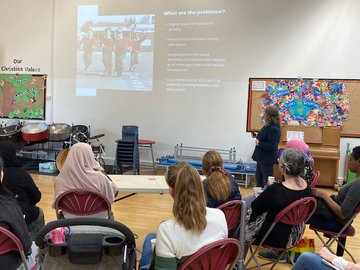
Cut the Jargon: Why Clear Communication Matters Between Schools and Families
If you’ve ever read a school letter and thought, “What does that even mean?”, you’re not alone!
Education is full of acronyms and professional language. Terms like EYFS, SEN, SLT, and EAL roll off the tongue in staffrooms, but they can leave parents puzzled, and sometimes unintentionally left out of the loop.
At the same time, educators are often under pressure to communicate quickly and efficiently. Using shorthand becomes second nature, especially when writing reports, filling in forms, or having back-to-back conversations with different families.
But here's the thing: when families and schools work together, children benefit. And that partnership depends on everyone understanding what’s being said.
Why does this matter?
When parents and carers feel confident and informed, they’re more likely to be involved in their child’s learning. That doesn’t mean oversimplifying or avoiding important information; it means making sure that everyone has a clear understanding of what’s going on, in a way that feels respectful and inclusive.
For parents, unfamiliar jargon can lead to confusion or anxiety, especially in meetings or written reports about their child’s development. For teachers and staff, it’s easy to forget how unfamiliar some of these terms can be outside the education world.
It’s also important to remember that not all school staff are experts in every acronym, either, especially early-career teachers, new starters, or those switching sectors.
What can we all do?
Whether you're a parent, carer, teacher, or early years practitioner, we all have a role to play in making language more accessible:
If you’re a teacher or educator:
- Try to avoid using acronyms unless you’ve explained them first
- Use everyday language where possible, especially in conversations and written communication
- Check in with parents, “Shall I explain that a bit more?” can go a long way
If you’re a parent or carer:
- Don’t be afraid to ask questions; you’re not expected to know every educational term
- Let your child’s teacher know if something is unclear; they’ll appreciate the feedback
- Use tools like glossaries or jargon busters to build your confidence
Our Jargon Buster is here to help
We’ve created a friendly, accessible Jargon Buster Tool to help bridge the gap between families and educators. It explains commonly used terms in plain English, with both parents and professionals in mind.
We recommend that schools and nurseries:
- Make the tool available to parents via their website, newsletters, or in welcome packs
- Keep it updated to reflect any changes in policy, curriculum, or internal language
- Offer hard copies at reception or in parent meetings for those who prefer something physical
Parents can save their own copy, add new terms they come across, and use it as a ready reckoner throughout the year.
The Jargon Buster is included in our Mouse Club memberships and is designed to strengthen relationships and promote clarity and understanding. When we all understand what’s being said, we can focus on what matters most: helping children thrive.
